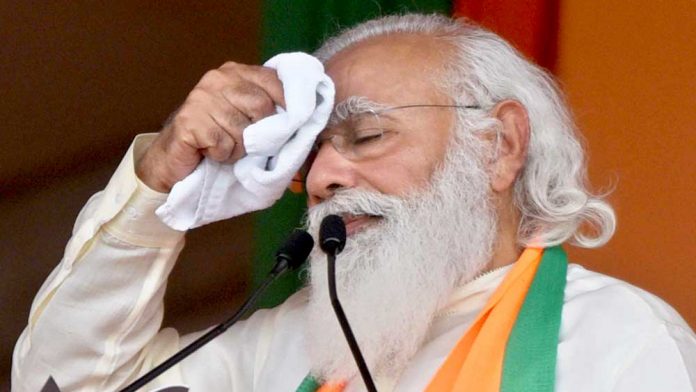There is a fundamental difference between privatization and monetization. The first refers to the government moving away from any business or organization. The second refers to the action of the government in such cases. That is why privatization is so much easier than monetization. However, the history of privatization by the Indian government is quite disappointing (Air India or Bharat Petroleum is a prime example). It can be said that the government has repeatedly missed the target in choosing the alienation sector. On the other hand, the monetization process is not very successful in the hope of making a profit of Rs 6 lakh crore in four years. Attempts to raise money for Indian Railways by selling the property were also unsuccessful. Could not create buyers’ curiosity. If that wish is not fulfilled, is there any point in declaring it effective? In particular, when this desire speaks contrary to previous experience?
Here is another problem. Which experts have said before. They identify the subject as ‘friendly’ (which is different from ‘relative’). Remember Narendra Modi’s famous saying: “Do not eat, do not eat danka.” (Simply put, I do not corrupt. I do not allow others to do so). Can one argue that the goal of ‘electoral bonds’ is not an example of ‘Khaunga’? But India’s position on Transparency International’s Corruption Perceptions Index has changed dramatically over the past two years. India ranks 6th to 7th out of 180 most corrupt countries in the world. This is where perceptions of the Modi government change.
In such a situation, privatization and financing are equally dangerous jobs. If we talk about Manmohan Singh’s government, we can see that telecom companies and mines were on the verge of destruction by auctioning licenses. All the private investors who relied on the government system collapsed. Because the court later announced that two types of licenses had been revoked. According to economist Arvind Subramaniam, in a country where there is no shortage of ‘blackmail capital’, personal reputation can be an issue. As the French often say, Anil Ambani is the ‘favorite’ contractor of the Indian government.
This time we will look at some contradictions and coincidences. The government’s vision is to turn to large retail chains that strengthen their balance sheets and capture the market with huge discounts for buyers. It should be noted, however, that the Telecom Commission also allowed Geo to do so in the telecommunications sector. How did GVK benefit from tenders from the Central Intelligence Agency (CBI) and the Enforcement Directorate (ED) (there were rumors at the time that one of the top ED officials might join the BJP). GVK stood in front of the Adani Group by taking over Mumbai Airport.
It is safe to say that such incidents multiplied during the ‘Agency Raj’ period. It is time for geological administrators to formulate all the complex rules for different projects in different areas. It was at this point that the corrupt Enron and his associates took advantage of the unilateral Davol power deal (which paved the way for the Maharashtra State Electricity Board to go bankrupt). Even the then Energy Secretary went beyond the statutory responsibility of the Central Electricity Authority to determine the basis of the project. At the same time, the question arises as to through which mantra the Adani Group signed a 40-year contract for the construction and operation of the Vizhinjam Port in Kerala, which is generally valid for 30 years.
Think about how the Tata Group’s Indian hotels approached the court to block the new auction after the contract expired. As a result, they retain control of one of the most important luxury hotels in New Delhi (the company eventually enters into a new contract). Think of ways in which contractors can avoid revenue by managing the amount of money collected. Think about infrastructure services and financial services. Think about it, government officials have acted as intermediaries at every stage of the execution and monitoring of these contracts (or benefited from their work after retirement) or in many cases those companies have graced the board of directors. What could be better than privatization and the loss of state control?
In short, the Modi government sank their boats on a dangerous shore where explosives were scattered everywhere. One can commend them for taking this risk indiscriminately and trying to achieve tough goals. But the grave mistakes they have made in the past, the failure to achieve their goals and the weakening of the country’s degenerate institutions are also ‘tainted’.





